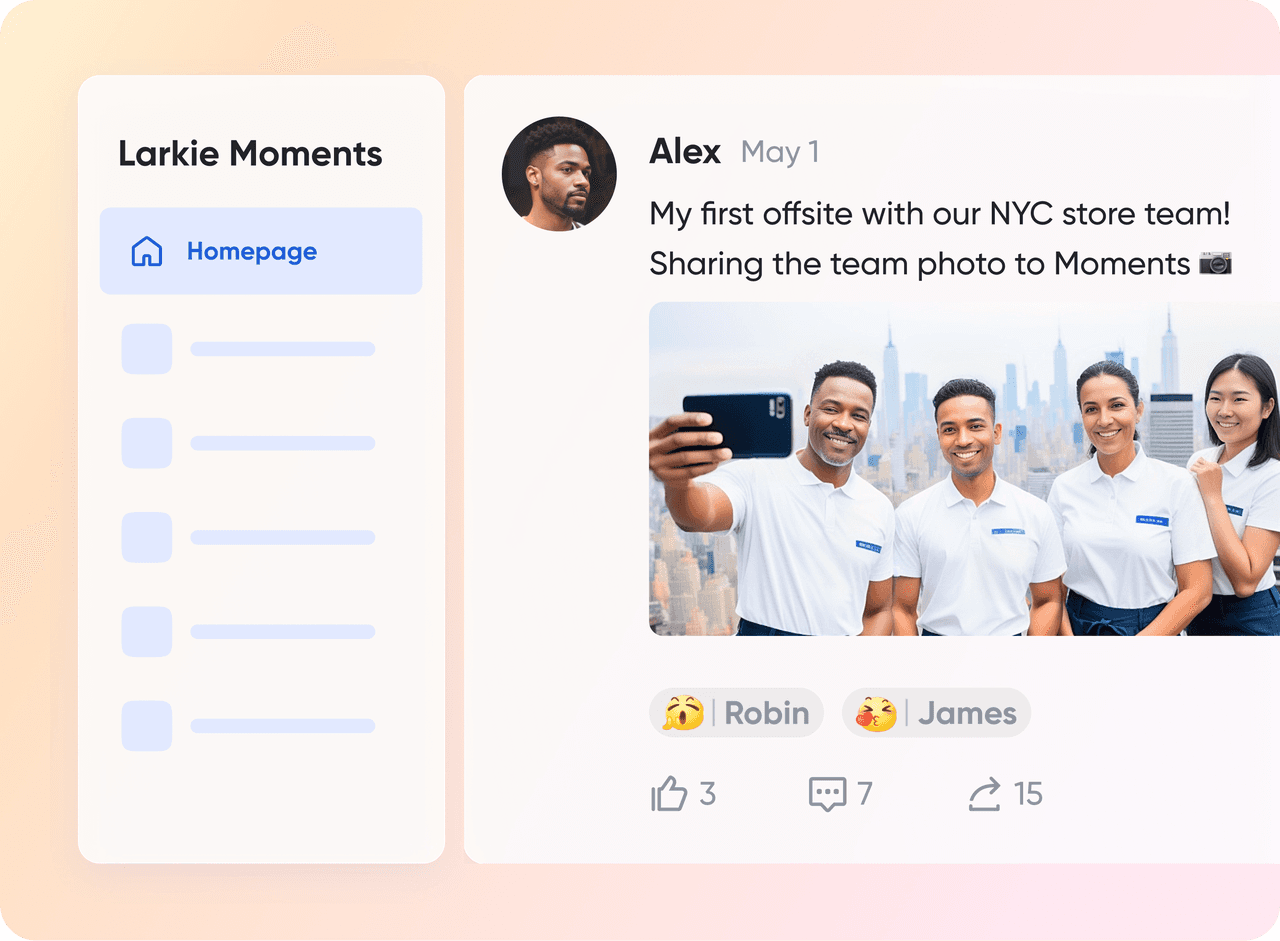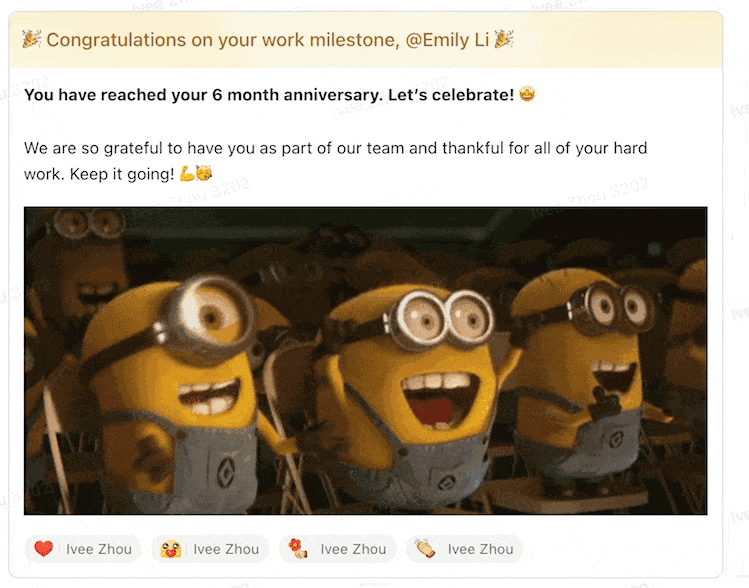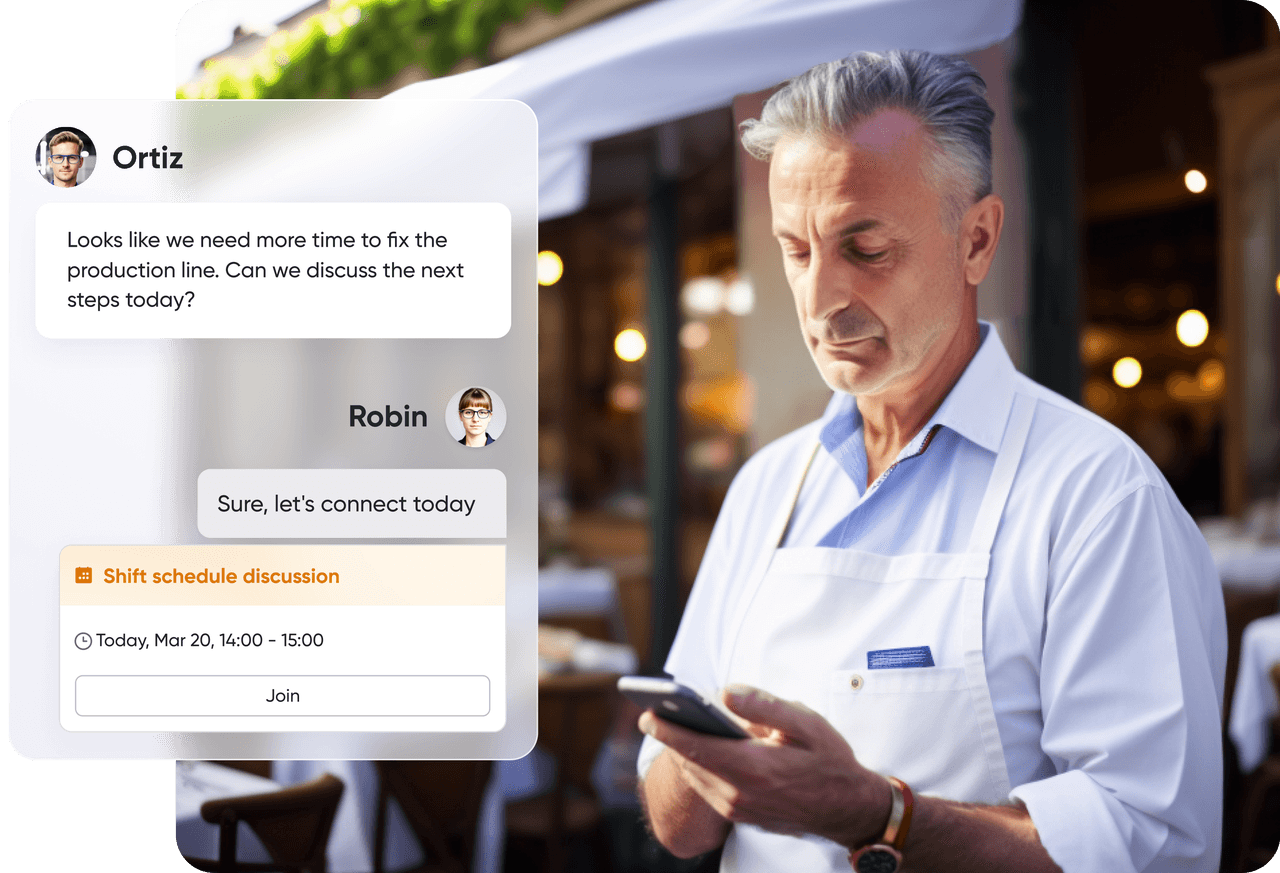Frontline employees are the backbone of every restaurant, but communication between frontline employees and the rest of the company can often be challenging and costly: disengaged frontline workers and lack of recognition in the restaurant industry can cost businesses on average $6,000 per worker.
By focusing on enhancing retention and involving employees, a company with around 100 frontline workers can save $1.5 million every year on employee replacement. In this blog, we'll cover some tips to help you boost employee engagement when they work in the field.
Keep frontline workers in the loop with company-wide updates.
Since internal communication in many food and beverage businesses is limited to texting or calling, not everyone receives important announcements or business updates. The lack of transparency can lead to a sense of distrust, uncertainty, and disengagement amongst frontline employees.
Tip: Regularly publicize accomplishments online to the entire company. For example, you can arrange group chats or public channels in your collaboration suite with the team, where updates can be shared to these channels for frontline employees to share the excitement and joy together.

Consistently recognize top performers and give frontliners the recognition they deserve.
Food and beverage frontline staff are not acknowledged enough for their efforts as they should be. High-performing employees are not easily identified or rewarded due to ineffective performance reviews mostly conducted through pen-and-paper. The inability to effectively identify and reward the most productive workers can demotivate and demoralize the employees who have worked hard to achieve success, leading to frontline disengagement and high turnover.
Tip: Conduct regular performance reviews to foster growth and applaud top-performing employees. Create performance evaluation structures and set up regular cycles to refresh review results. In addition, it is good practice to create shout-outs on employee accomplishments, such as top sales per month or work anniversaries; you can consider automating these type of announcements to celebrate whenever an employee reaches key milestones. Recognizing achievements and publicly acknowledging them can serve as a natural motivator for others. Happier employees = happier customers!

Provide a solid communication channel to connect the HQ with frontline workers.
When frontline workers feel isolated from the company, it can lead to a lack of engagement and motivation towards their work. They also may feel unsupported and undervalued by the company. Not having a communication channel also makes it difficult for managers and executives to gather valuable feedback from frontline workers on operational issues and customer experience can hinder the company's ability to improve its processes and services.
Tip: Encourage real-time messaging and collaboration to resolve feedback and ensure frontline voices are heard. Get in-store teams and the HQ instantly through chat and meetings, so frontline employees can quickly resolve customer issues, get questions answered immediately, and work more efficiently — even from their phones. You can also create a company feedback board that allows every employee to post suggestions, plus dedicated teams to ensure everything is addressed and resolved.

Foster and support employee growth.
Encouraging employee growth is a critical aspect of engaging frontline workers in the restaurant industry. Insufficient support can decrease employee motivation and job satisfaction, leading to a decline in overall performance and a high turnover rate.
Tip: Create mentoring opportunities and encourage everyone to set goals. A mentorship program within your restaurant allows those who are more experienced to teach valuable skill sets to those who are starting off in their careers. Mentors and mentees can connect through chat, set up meetings, and create a progress doc, allowing mentors and mentees to communicate, track progress, and set goals in a collaborative and structured manner.
Moreover, establish clear goals for your employees through OKR's, a goal-setting framework that aligns employees' personal and career objectives with the broader goals of the restaurant. For example, an employee can set an OKR to learn a new skill, such as creating a signature cocktail. By providing opportunities for employee growth, restaurants can engage their frontline workers and create a more motivated, productive, and happy workforce.
Conclusion
Overall, when frontline employees feel recognized and connected to the company, they are more likely to be engaged and motivated in their work. They feel like they are part of a larger team working towards a common goal, and they are more likely to take ownership of their work and go above and beyond to provide excellent service to customers, ultimately leading to increased customer satisfaction, higher employee retention rates, and a positive work culture.
Interested in boosting your frontline team's engagement? Consult an expert at Lark for free today.








